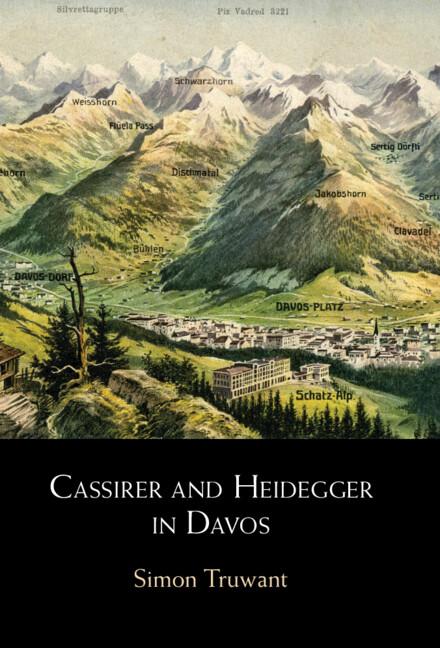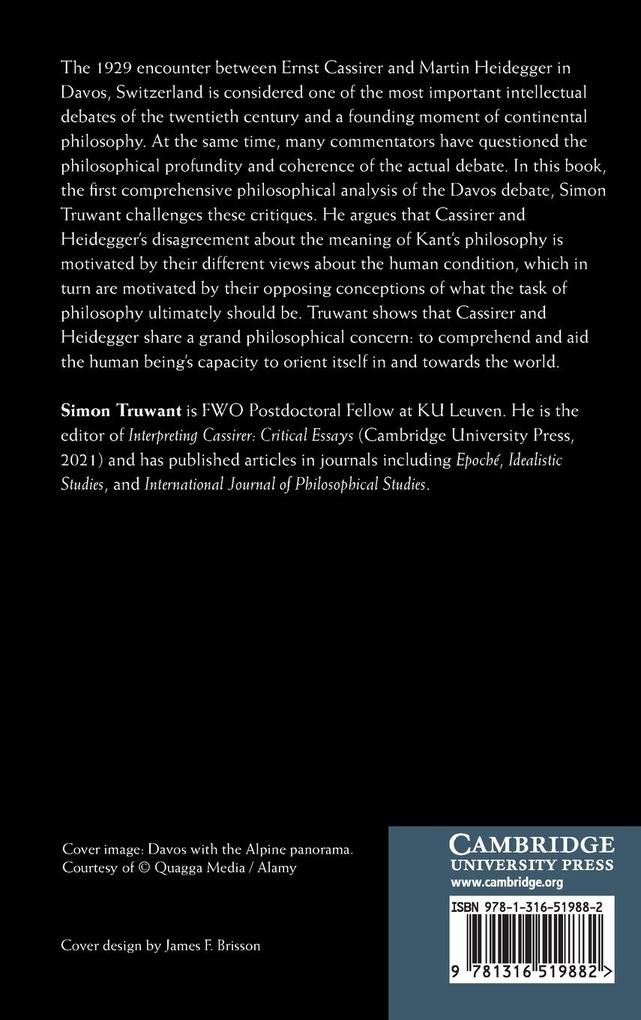
Zustellung: Sa, 26.07. - Mi, 30.07.
Versand in 7 Tagen
VersandkostenfreiBestellen & in Filiale abholen:
The 1929 debate between Ernst Cassirer and Martin Heidegger in Davos is considered one of the most important intellectual debates of the twentieth century and a founding moment of continental philosophy. This is the first comprehensive philosophical analysis of the content and arguments of this fascinating and often misunderstood debate.
Inhaltsverzeichnis
Introduction: what is at stake in the Davos debate?; 1. Reconstructing the Davos debate; Part I. The Lasting Meaning of Kant's Thoughts: 2. Cassirer's transformation of the critique of reason into a critique of culture; 3. Heidegger's reading of transcendental philosophy as phenomenological ontology; 4. Receptivity or spontaneity: two readings of the Critique of Pure Reason; Part II. 'What Is the Human Being?': 5. Cassirer's functional account of the 'animal symbolicum'; 6. Heidegger's existential analytic of 'Dasein'; 7. Infinity and finitude: the quest for existential orientation; Part III. The Task of Philosophy: 8. Cassirer's functional conception of philosophy; 9. Heidegger's hermeneutic conception of philosophy; 10. Enlightenment or therapy: the cosmopolitan task of philosophy; Conclusion: the terminus a quo and terminus ad quem of the Davos debate.
Produktdetails
Erscheinungsdatum
25. April 2022
Sprache
englisch
Seitenanzahl
276
Autor/Autorin
Simon Truwant
Verlag/Hersteller
Produktart
gebunden
Gewicht
554 g
Größe (L/B/H)
235/157/19 mm
ISBN
9781316519882
Entdecken Sie mehr
Bewertungen
0 Bewertungen
Es wurden noch keine Bewertungen abgegeben. Schreiben Sie die erste Bewertung zu "Cassirer and Heidegger in Davos" und helfen Sie damit anderen bei der Kaufentscheidung.










